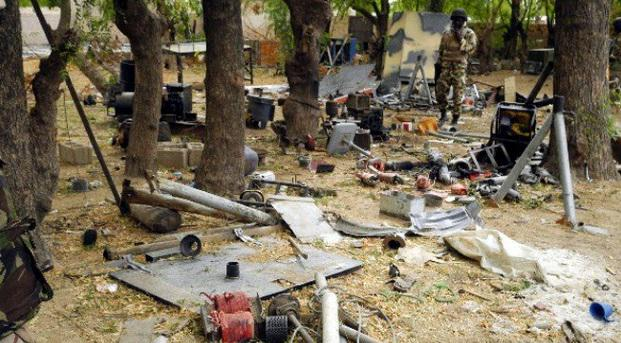By Amb. John Campbell
Boko Haram’s release of eighty-two girls to the Nigerian government appears to be part of its strategy to maximize the value of the Chibok kidnapping victims. According to The Guardian, Boko Haram successfully demanded the release of five Boko Haram imprisoned leaders in return for the eighty-two girls in a deal brokered by a lawyer whose clients once included Boko Haram founder Mohammed Yusuf. The negotiation process was also facilitated by the Red Cross and the Swiss government. There was an earlier Boko Haram release of twenty-one Chibok school girls, presumably also in exchange for other Boko Haram leaders, though no announcement of the terms of that bargain was ever made. If the girls are alive, Boko Haram still has more than one hundred of the Chibok school girls in captivity. A bargaining process in which Boko Haram releases school girls in exchange for the return of its incarcerated lieutenants is likely to continue.

International notoriety has made the Chibok victims far more valuable to Boko Haram than the hundreds or thousands of other kidnapping victims it holds (The total number of which is unknown). In light of international recognition regarding this particular kidnapping, Boko Haram leader Abubakar Shekau has consistently said, that he would exchange the girls for Boko Haram operatives held by the Nigerian government. But, Abuja resisted such an exchange, presumably on the basis that it could strengthen the terrorist movement. With the dislodging of Boko Haram from the territories it once held, Abuja may now feel strong enough the release some of its Boko Haram captives in return for Chibok schoolgirls.
The eighty-two newly freed girls are now in Abuja, where they met with President Muhammadu Buhari just before he returned to London on medical leave. The initial twenty-one girls that were released also remain in Abuja. As yet, the Nigerian government has not allowed any of them to return to their families pending medical care and “re-education.” Amnesty International is calling for the Nigerian government’s release of all of the Chibok girls it now has so that they can return to their families. However, in general, the re-integration of former Boko Haram captives has been difficult; local communities are suspicious that freed kidnapping victims may have been ‘turned’ by Boko Haram.
In what may be a related development AP is reporting United States and United Kingdom warnings that Boko Haram is planning to kidnap foreigners in northern Nigeria. The kidnapping of foreigners can be lucrative, far more so than local school girls. Jihadist groups in other parts of Africa’s Sahel have financed their operations through the ransoms of foreign kidnapping victims. Boko Haram may well shift its focus from kidnapping Nigerian women and girls to concentrating instead on foreigners.
Should Boko Haram start to kidnap foreigners, aid workers are likely to be victims as there are few other foreigners in northeast Nigeria. Such a development would have devastating consequences for international efforts to deliver famine relief and humanitarian assistance. The United Nations’ Food and Agriculture Organization estimates that 3.4 million persons in northeast Nigeria and Lake Chad Basin face food insecurity and some 40,000 are at present victims of famine.
The article was originally published by Council on Foreign Relations (CFR)













